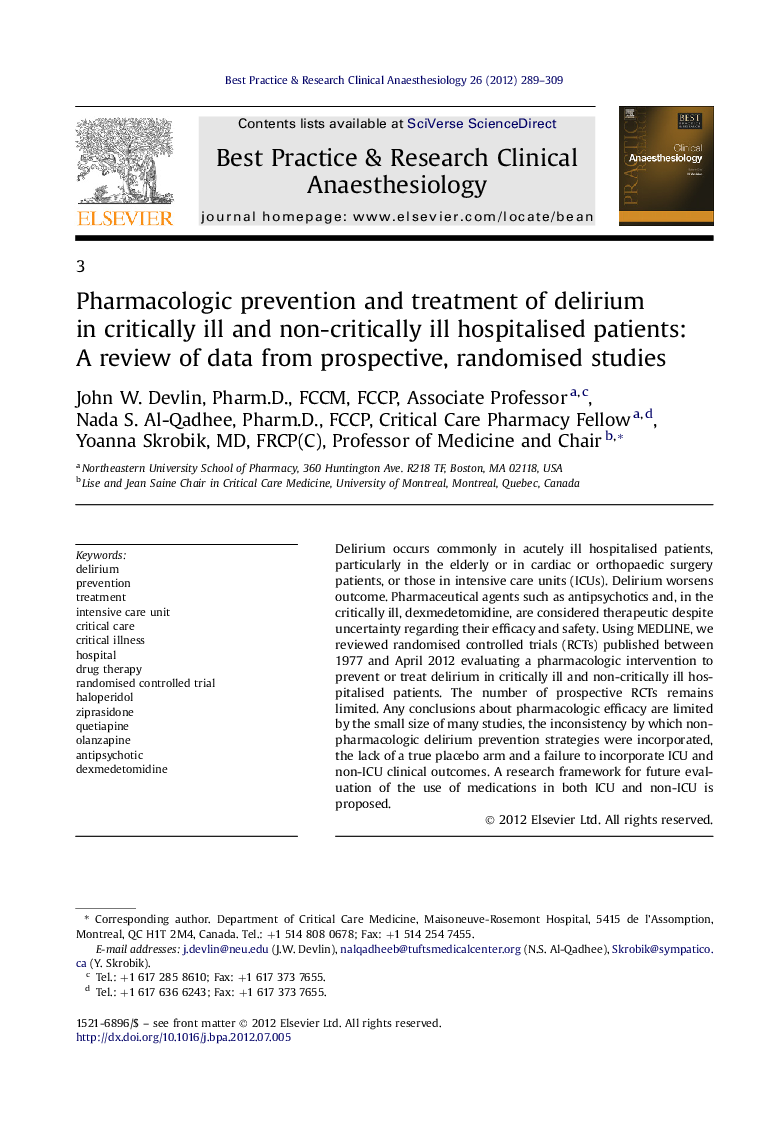| Article ID | Journal | Published Year | Pages | File Type |
|---|---|---|---|---|
| 2748546 | Best Practice & Research Clinical Anaesthesiology | 2012 | 21 Pages |
Delirium occurs commonly in acutely ill hospitalised patients, particularly in the elderly or in cardiac or orthopaedic surgery patients, or those in intensive care units (ICUs). Delirium worsens outcome. Pharmaceutical agents such as antipsychotics and, in the critically ill, dexmedetomidine, are considered therapeutic despite uncertainty regarding their efficacy and safety. Using MEDLINE, we reviewed randomised controlled trials (RCTs) published between 1977 and April 2012 evaluating a pharmacologic intervention to prevent or treat delirium in critically ill and non-critically ill hospitalised patients. The number of prospective RCTs remains limited. Any conclusions about pharmacologic efficacy are limited by the small size of many studies, the inconsistency by which non-pharmacologic delirium prevention strategies were incorporated, the lack of a true placebo arm and a failure to incorporate ICU and non-ICU clinical outcomes. A research framework for future evaluation of the use of medications in both ICU and non-ICU is proposed.
